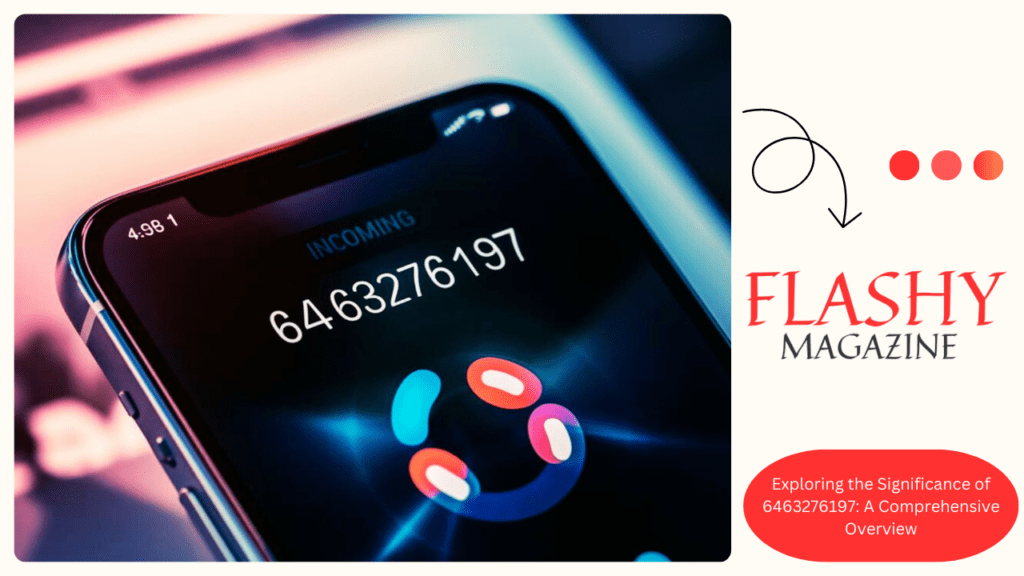The Demigirl Identity: A Comprehensive Guide Demigirl, a term emerging in the ever-evolving landscape of gender identity, holds significant meaning for those who identify with it. This blog post delves into the intricacies of the demigirl identity, exploring how it fits within the broader spectrum of gender and emphasizing the importance of understanding and respecting diverse identities for fostering inclusivity. Link: [The Demigirl Identity: A Comprehensive Guide](https://flashymagazine.xyz/the-demigirl-identity-a-comprehensive-guide/) One similar term is” demigirl,” a gender identity that may be strange to some but holds significant meaning for others. This blog post will claw into what it means to identify as a demigirl, how that identity fits into the broader gender diapason, and why understanding and esteeming similar individualities is critical to promoting inclusivity.
What’s a Demigirl?
A demigirl is someone who incompletely but not fully identifies as a girl or woman. The prefix” demi-” means” half” or” partial”, reflecting the partial association with feminity that defines this identity. still, a demigirl is n’t simply aligned with being a woman. rather, they may witness their gender as a blend of womanish and other gender, or they may feel only incompletely connected to the conception of feminity.
For illustration, a demigirl may feel more aligned with feminity than virility or impartiality, but not completely identify with being a woman. Their gender identity is different and may include different aspects of gender that transcend traditional delineations.
Demigirl Identity on the Gender Diapason
Gender identity is frequently seen as a diapason rather than a binary. Traditional generalities of gender have generally been limited to manly and womanish, but this double fails to capture the full range of mortal experience. numerous people identify nearly in between or outside of these orders, and the demigirl identity is a high illustration of this.
For some, being a demigirl means passing a gender that’s substantially womanish, but with a significant portion that feelsnon-binary, genderqueer, or connected to another gender. Others may feel a partial connection to feminity without completely embracing it, maybe due to disposition from societal prospects of feminity or an affinity for other gender expressions.
This complexity is why the term demigirl is precious. It allows individualities to articulate their experience of gender in a way that’s authentic and accurate, rather than forcing themselves intopre-defined orders that do n’t completely reflect their reality.
Common Misconceptions About Demigirl Identity
As with numerousnon-binary gender individualities, demigirls frequently face misconceptions and misconstructions. Then are a many common bones:
- Myth: Demigirls are just confused about their gender.
Reality: relating as a demigirl is not about confusion, it’s about understanding and expressing your gender identity. The demigirl identity is a licit and valid way for someone to express their gender experience.
- Myth: Demigirls are partial womanish and partial manly.
Reality: The term demigirl does n’t mean a strict division into men and women. rather, it suggests a partial connection to feminity that may or may not involve other gender gests . It’s important not to complexify and distort this identity.
- Myth: Demigirls are all the same.
Reality: Like any gender identity, being a demigirl can be endured in different ways. Some may lean further towards feminity, others may feel a strong connection tonon-binary individualities. The key is that the individual incompletely identifies with being womanish, but the specifics can vary extensively.
Meaning of Pronouns and Language
One of the most visible aspects of gender identity is the use of pronouns. For numerous demigirls, using the correct pronouns is a vital part of feeling conceded and admired. While some demigirls prefer she her pronouns, others may use they them, or a combination of pronouns that reflects their unique gender experience.
It’s important to ask someone about their pronouns rather than making hypotheticals grounded on appearance or name. esteeming pronouns is a introductory but profound way to show acceptance and understanding of someone’s identity.
Language plays a significant part in how we perceive and validate gender individualities.By using inclusive language and feting individualities like demigirl, we help produce a society where everyone can genuinely express their gender without fear of judgment or rejection.
Representation and Visibility
Representation ofnon-binary and gendernon-conforming individualities, including demigirls, is sluggishly adding in media and culture. Positive representation in television shows, pictures, literature, and online platforms is essential for demigirls and other marginalized individualities to feel seen and understood.
When demigirl characters are portrayed in the media, it helps to homogenize their gests and give part models for those who identify also. It also educates the wider public about the diversity of gender individualities, promoting lesser empathy and acceptance.
Visibility, both in the media and in everyday life, is essential for demigirls to feel validated. This includes not only seeing themselves in the media, but also chancing probative communities, coffers, and abettors who understand and admire their identity.
Challenges Demigirls Face
Despite growing mindfulness ofnon-binary and gendernon-conforming individualities, demigirls still face challenges. These challenges can range from internal struggles with tone- acceptance to external pressures from society, family or peers.
- Internal Challenges:
Numerous demigirls may struggle with the legality of their identity, especially if they feel pressured to conform to traditional gender places. Being womanlike- leaning can occasionally lead to women feeling” not enough” or misknew by both double andnon-binary communities.
- External Challenges:
Society frequently struggles with individualities that do n’t fit neatly into double orders. Demigirls can face misgendering, underrepresentation, and a general lack of understanding. These challenges can lead to passions of insulation or frustration.
- Navigation in Social Spaces:
In both social and professional settings, demigirls can find it delicate to navigate explosively unsexed spaces. Bathrooms, apparel, and indeed language are frequently insulated by gender, which can complicate diurnal life for those who do n’t completely identify with any double option.
Demigirl Support What You Can Do
Still, family member or coworker who identifies as a demigirl, there are several ways you can offer support If you have a friend.
- Educate yourself:
Take time to learn about demigirl identity and othernon-binary individualities. Understanding the nuances of gender can help you come a more informed and probative supporter.
- Use the Correct Pronouns:
Always use pronouns that the existent prefers. Using the correct pronouns shows respect and acknowledges their identity.
- Hear and Corroborate:
Occasionally the stylish support is just harkening. Allow them to partake their gests without judgment or trying to” fix” their passions. corroborate their identity by attesting that it’s real and licit.
- Try Conceptions:
Challenge gender conceptions and misconceptions. Whether it’s in exchanges, on social media, or in a professional setting, challenging these misconceptions helps produce a further inclusive terrain.
- Sympathizers of Inclusivity:
Support programs and practices that promote inclusivity, similar as gender-neutral bathrooms and pronoun options on forms and attestation. These small changes can make a big difference in creating a welcoming space for demi- girls and others with different gender individualities.
Conclusion
The demigirl identity is an important part of the rich shade of mortal gender diversity. When we understand what it means to be a demigirl, we can more appreciate the complications of gender and support those who identify with the term. As society continues to evolve, it’s essential to accept and admire all gender individualities and fete that everyone’s experience of gender is valid and good of recognition.
Through education, empathy, and active alliances, we can produce a world where demigirls and all individualities can express their individualities without fear or limitation.








